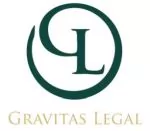The Supreme Court with a view to address the ambiguity lingering within Section 14 of the Insolvency & Bankruptcy Code, 2016 ("S.14 of IBC, 2016"), which deals with the imposition of Moratorium on the Corporate Debtor, provided a clarificatory analysis in terms of its applicability in respect of the Corporate Debtor and the management of the Corporate Debtor.
First, let us take a look at the spirit of the letter enshrined under the aforesaid provision. Section 14 of the Insolvency and Bankruptcy Code, 2016 reads as under:
"14 (1) Subject to provisions of sub-sections (2) and (3), on the insolvency commencement date, the Adjudicating Authority shall by order declare moratorium for prohibiting all of the following, namely:
- the institution of suits or continuation of pending suits or proceedings against the corporate debtor including execution of any judgment, decree or order in any court of law, tribunal, arbitration panel or other authority;
- transferring, encumbering, alienating or disposing of by the corporate debtor any of its assets or any legal right or beneficial interest therein;
- any action to foreclose, recover or enforce any security interest created by the corporate debtor in respect of its property including any action under the Securitisation and Reconstruction of Financial Assets and Enforcement of Security Interest Act, 2002;
- the recovery of any property by an owner or lessor where such property is occupied by or in the possession of the corporate debtor.
14(2) The supply of essential goods or services to the corporate debtor as may be specified shall not be terminated or suspended or interrupted during moratorium period.
14(2A) Where the interim resolution professional or resolution professional, as the case may be, considers the supply of goods or services critical to protect and preserve the value of the corporate debtor and manage the operations of such corporate debtor as a going concern, then the supply of such goods or services shall not be terminated, suspended or interrupted during the period of moratorium, except where such corporate debtor has not paid dues arising from such supply during the moratorium period or in such circumstances as may be specified.
14(3) The provisions of sub-section (1) shall not apply to:
- such transactions, agreements or other arrangements as may be notified by the Central Government in consultation with any financial sector regulator or any other authority;
- a surety in a contract of guarantee to a corporate debtor.
14(4) The order of moratorium shall have effect from the date of such order till the completion of the corporate insolvency resolution process:
Provided that where at any time during the corporate insolvency resolution process period, if the Adjudicating Authority approves the resolution plan under sub-section (1) of section 31 or passes an order for liquidation of corporate debtor under section 33, the moratorium shall cease to have effect from the date of such approval or liquidation order, as the case may be."
In view of S.14 of IBC, 2016 the Apex Court presided by the Bench of Justice Dhananjaya Y. Chandrachud, Justice Vikram Nath and Justice Hima Kohli, whilst adjudicating insolvency proceedings in the matter of Anjali Rathi V. Today Homes & Infrastructure Private Limited, recently observed that the Moratorium under S.14 of IBC, 2016 is not applicable in respect of the Promoters or Directors or KMPs or Officers of the Corporate Debtor, who form a part of the management of the Corporate Debtor.
In the captioned matter, it was submitted before the Apex Court that since Moratorium imposed on the Corporate Debtor continues to operate under S.14 of IBC, 2016, no pending proceedings can be continued, or no new proceedings can be initiated against the Corporate Debtor or the management of the Corporate Debtor.
Taking into consideration the aforementioned submissions, the Bench sought to clarify the right of the Petitioners to move against the Promoters of the Corporate Debtor, even though a Moratorium has been imposed upon the Corporate Debtor, by placing their reliance on a Judgement passed by a three judge Bench of the Apex Court in the matter of P. Mohanraj V. Shah Bros. Ispat (P) Ltd.
The Apex Court by way of the aforementioned judgement had already set a precedent stating that proceedings under Section 138 and 141 of the Negotiable Instruments Act, 1881, against the Corporate Debtor would be covered by the Moratorium provision under S.14 of IBC, 2016. However, it further clarified that the Moratorium was only in relation to the Corporate Debtor and not in respect of the management of the Corporate Debtor, against whom any pending proceedings could continue, or new proceedings can be initiated against.
The relevant paragraph from the Judgement passed by the Apex Court in the matter of P. Mohanraj V. Shah Bros. Ispat (P) Ltd., reads as under:
"102. Thus, for the period of moratorium, since no Sections 138/141 proceedings can continue or be initiated against the corporate debtor because of a statutory bar, such proceedings can be initiated against the persons mentioned in Section 141(1) and (2) of the Negotiable Instruments Act. This being the case, it is clear that the moratorium provision contained in Section 14 IBC would apply only to the corporate debtor, the natural persons mentioned in Section 141 continuing to be statutorily liable under Chapter XVII of the Negotiable Instruments Act."
In view thereof, the Supreme Court addressed the ambiguity in terms of applicability of S.14 of IBC, 2016 by clarifying that any Entity, legal or otherwise, cannot be prevented by the Moratorium provision under S.14 of IBC, 2016 from initiating or continuing judicial proceedings against the management of the Corporate Debtor.
The content of this article is intended to provide a general guide to the subject matter. Specialist advice should be sought about your specific circumstances.

